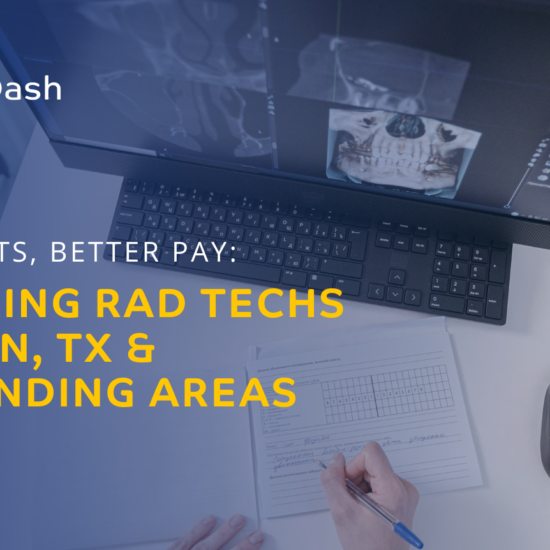Ultimate Guide to Nursing Careers
Are you ready to become a nurse? Or maybe it’s time to take your nursing career to the next level. While deciding to go to nursing school is exciting, it also requires you to make so many decisions that you might not know where to begin. Nursing career options can be confusing, and choosing the right one can be a little scary and very challenging.
Well, you’re in luck! This guide covers entry-level nursing jobs and what to expect from nursing school.
Nursing Career Pathways
Many people consider Registered Nurse (RN) programs when exploring a nursing career. However, it’s essential to know that becoming an RN isn’t the only option. Nursing offers various positions and degrees, each with a specific scope of practice upon graduation. In addition, each nursing credential comes with different income potential, educational costs, and nursing school requirements.
So, before you start a program, it’s critical you understand nursing career options, earning potentials, and school requirements.
Nurse Aides
You might know this group of healthcare professionals by a few titles. Common titles for nurse aides include Certified Nursing Assistants (CNA), State-Tested Nursing Assistants (STNA), or Personal Care Assistants (PCA). For this article, we’ll use the term nurse aide to cover all three.
Nurse aides work under the direction of a licensed nurse and follow care plans created by the nursing staff. They provide hands-on personal care to patients and work in hospitals, nursing homes, and home care settings. Nurse Aides assist with activities of daily living such as bathing and dressing and perform medical tasks like taking vital signs. In addition, some states give these professionals a more extensive scope of practice, allowing them to perform skills like medication administration and specialized procedures such as measuring blood glucose levels or changing ostomy bags.
Understanding Nursing Assistant Programs
Nurse Aide programs last eight to 12 weeks and teach students how to assist with personal care and daily activities. In addition, you’ll learn strategies to keep patients safe during care and how to meet the needs of special patient populations like those living with Alzheimer’s disease.
Most nurse aide programs cost a few thousand dollars. However, you may also have to pay for background checks, medical exams, immunizations, and supply fees for textbooks and scrubs. Once you complete training, you’ll pay to take the state test to become certified, which in most states costs between $100 and $150. According to the Bureau of Labor Statistics, nurse aides make an average of $30,290 yearly in the U.S.
Licensed Practical Nurse or Licensed Vocational Nurse
Licensed Practical Nurse (LPN) and Licensed Vocational Nurse (LVN) describe the same job. The only difference is the state in which the nurse works.
These nursing professionals provide hands-on care to patients in various settings. They perform patient assessments, take vital signs, pass medications, and care for wounds. LPN/LVNs work under the supervision of a registered nurse and follow care plans when delivering care. Most LPN/LVNs work in long-term care facilities. However, nursing job opportunities for LPN/LVNs are expanding to hospitals and other acute care roles due to the shortage of Registered Nurses.
Understanding LPN/LVN Programs
LPN/LVNs can attend private or public nursing schools. Most programs take 12 to 18 months to complete and are offered during the day or evening. You’ll learn basic nursing skills like assessment and medications during school. LPN/LVN nursing school requirements include attending lectures, skills labs, and clinical rotations. Upon completion, you’ll hold a diploma in practical or vocational nursing and be eligible to take the National Council Licensing Examination for Practical Nurses (NCLEX-PN) exam. Once you pass the NCLEX-PN, you can start a nursing career as an LPN/LVN. According to the BLS, these nurses make an average of $48,070 annually.
Registered Nurse
RNs perform varying job duties and can work with a variety of patient populations in both acute and post-acute care settings. They perform patient assessments, record medical histories, provide complex wound care, draw blood, and administer medications and treatments. In addition, RN nursing careers allow you to work closely with the primary physician for the patient and direct overall hands-on care for the multidisciplinary care team.
RNs also educate patients and their family members to prepare them for returning home. They work independently and have more responsibilities than an LPN/LVN or nurse aide. Another unique part of being an RN is the ability to hold leadership and administrative positions.
Understanding RN Programs
If becoming an RN appeals to you, you’ll have a few options for nursing school. There are three entry-level RN programs – certificate, Associate’s (ADN), and Bachelor’s (BSN). Certificate nursing programs are fewer today than 20-30 years ago as there has been a recent push for higher-educated nurses. In this program, you’ll attend nursing school for about two years and earn a certificate. Nursing school requirements include attending lectures, skills labs, and clinical rotations, and some programs require an externship or preceptorship before graduation.
Most RN programs award an Associate’s or Bachelor’s Degree. While both nurses take the same national exam (NCLEX-RN) after school, there are a few differences between these two professionals and their nursing school programs:
- Program Length – ADN nurses attend a two-year nursing program, while BSN nurses go to school for four years. BSN programs provide more in-depth nursing education, including advanced concepts and nursing theory.
- Career Opportunities – ADN-prepared nurses work in hospitals, agencies, physician’s offices, home care, and hospices. They can hold a variety of hands-on nursing roles in many different specialties. BSN-prepared nurses can have all of the positions an ADN-prepared nurse can hold but can also fill more advanced functions, including jobs in leadership, pharmaceuticals, informatics, and case management.
Once you choose and complete your RN program, you’ll need to take and pass the NCLEX-RN before you can work as a nurse. According to the BLS, RNs make an average of $77,600 annually.
Which Nursing Career Path is Right for You?
The great news about nursing careers is that there isn’t a one-size fits all path. You might decide to do a BSN program first or to become a nurse aide and slowly stack your degrees and programs so you can work while you attend nursing school. Both of these options are good and work well. So, pick the one that works best for you so you can start enjoying a nursing career full of success!
To learn more about how NurseDash can support you through nursing school by allowing you to build your own schedule, and work when & where you want, click here.





